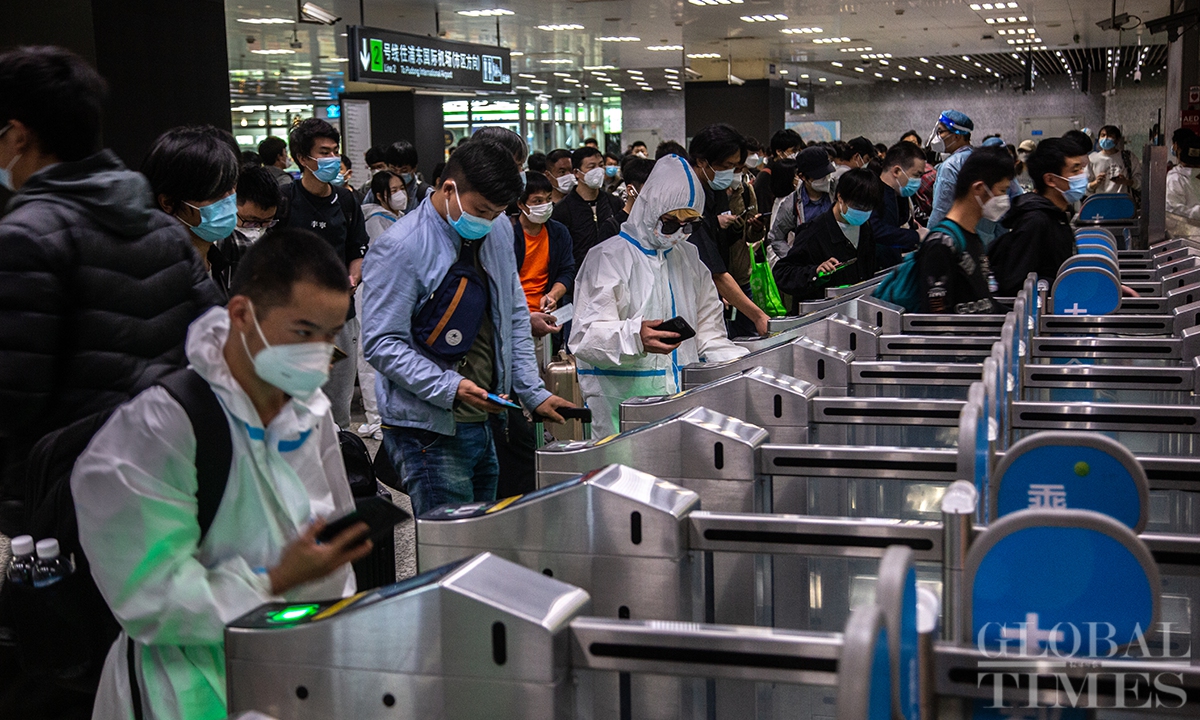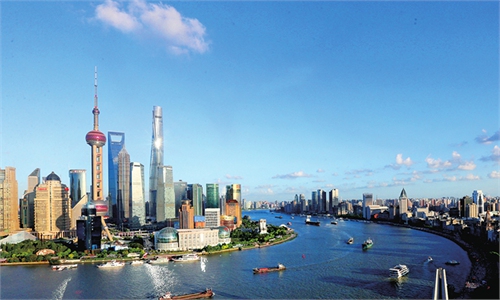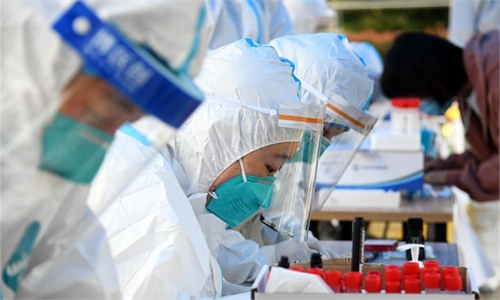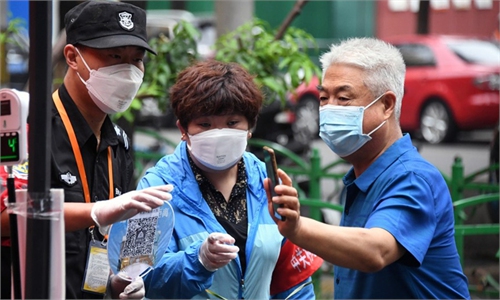
People take their luggage and arrive at the entrance of Hongqiao Railway Station in Shanghai on Sunday. Photo: Wu Shiliu/GT
Chinese Premier Li Keqiang stressed equal rights of employment and called for the punishment of those who discriminate against recovered COVID-19 patients, during a meeting of the State Council on Wednesday.
Any discrimination against those who recovered will be dealt with whenever it is discovered, he noted during the meeting.
Recently, a number of local governments have also issued regulations to ban discrimination of COVID-19 patients and corrected some local anti-epidemic measures deemed deviant or unnecessary.
The meeting also vowed enhanced measures to create more employment positions to ensure the stability of the job market.
The meeting was held amid a recent heated discussion over discrimination against recovered COVID-19 patients on the job market, as media reported that some migrant workers in Shanghai, who recovered from the virus, were left jobless and homeless in the city for more than a month. They expressed difficulties to find a job as some employers refused to hire people with a previous COVID-19 infection.
The discussion arose on Monday as the story of Fen (pseudonym), a migrant worker in Shanghai, went viral after failing to find a job because she was a recovered COVID-19 patient.
In response, Yin Xin, spokesperson of the Shanghai government, said at a press conference on Monday that all departments and institutes in the city should treat recovered patients fairly and must not discriminate against them.
Yin called for society to avoid labeling the citizens or setting barriers for them in daily life or work. They should not be put under unnecessary shadows, Yin said.
Amid public concerns, the Global Times visited the Hongqiao railway station where Fen lived for a month and found about 10 people who were left stranded at the station. Some of them were recovered patients while others lost their ID cards and could not find a job or return to their hometowns.
A man surnamed Ren told the Global Times that he came to Shanghai to help build a makeshift hospital in April and got infected with the virus. However, his boss did not pay him the promised 2,000 yuan ($297) travel fare after the city reopened and the makeshift hospital was closed.
Ren said he tried to find a job but was always refused as he "was once infected."
He also hesitated about going back home as his hometown required returnees from Shanghai to stay under centralized quarantine at their own expense, which was between 300 and 600 yuan ($45-89) per day. Ren said he is not telling his family about his past infection and the fact that he is stranded at the station.
As the Chinese central government has been continuously reiterating equal treatment to the recovered patients and requiring local governments to avoid one-size-fits-all measures, more people like Ren and Fen have received help, found jobs or returned to hometown recently.
Fen told the media on Tuesday she has found a job as a delivery courier for SF Express in Shanghai, after the city's authorities called on employers not to discriminate against recovered patients.



